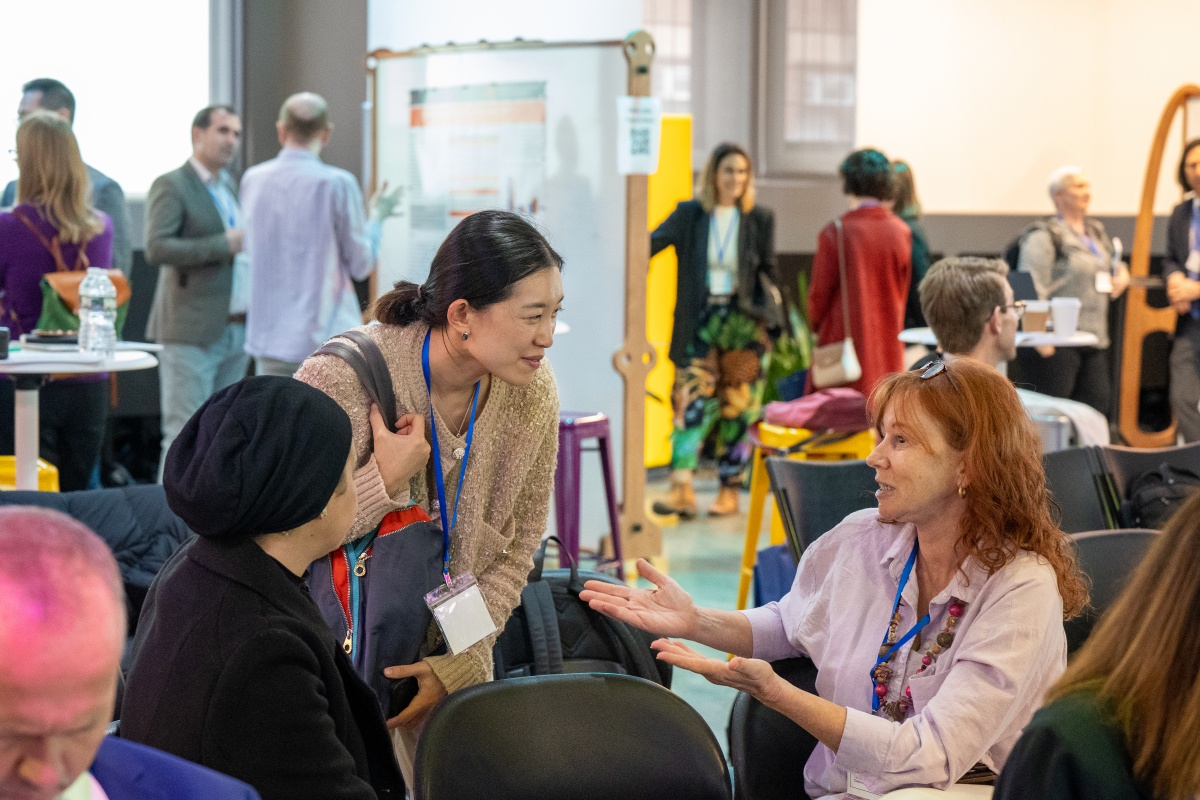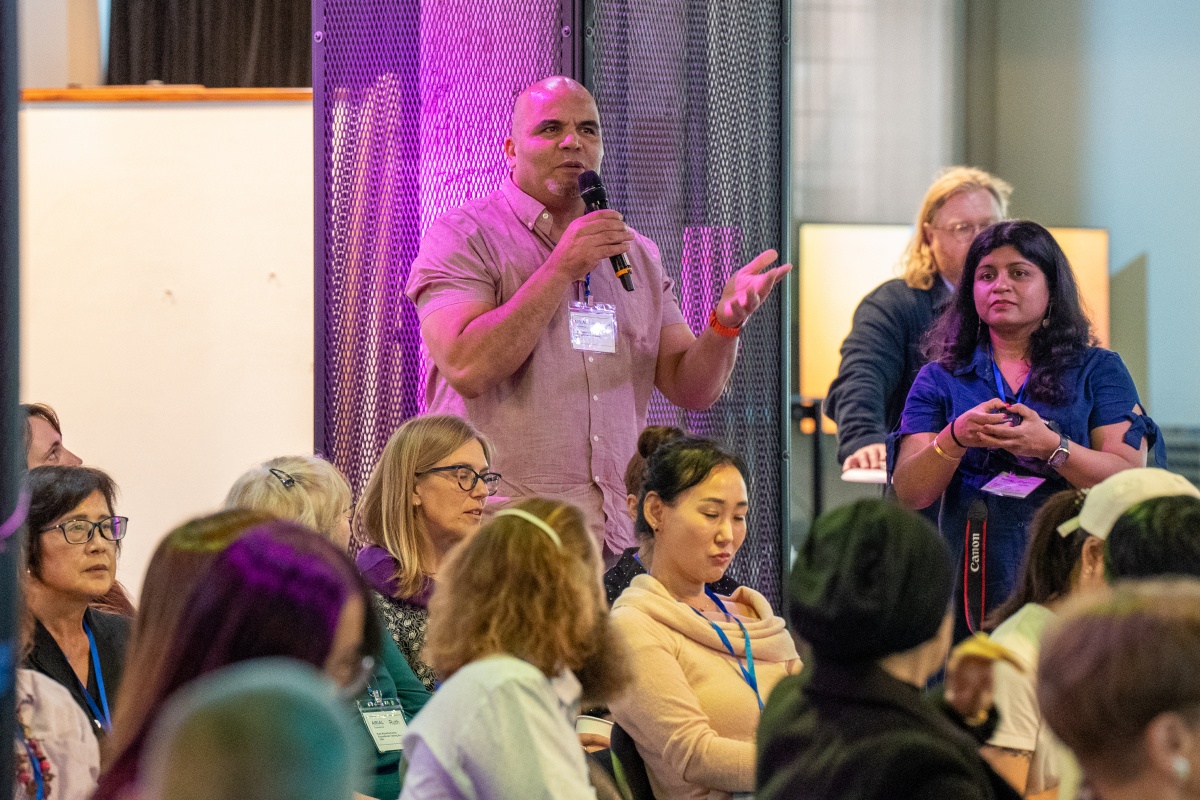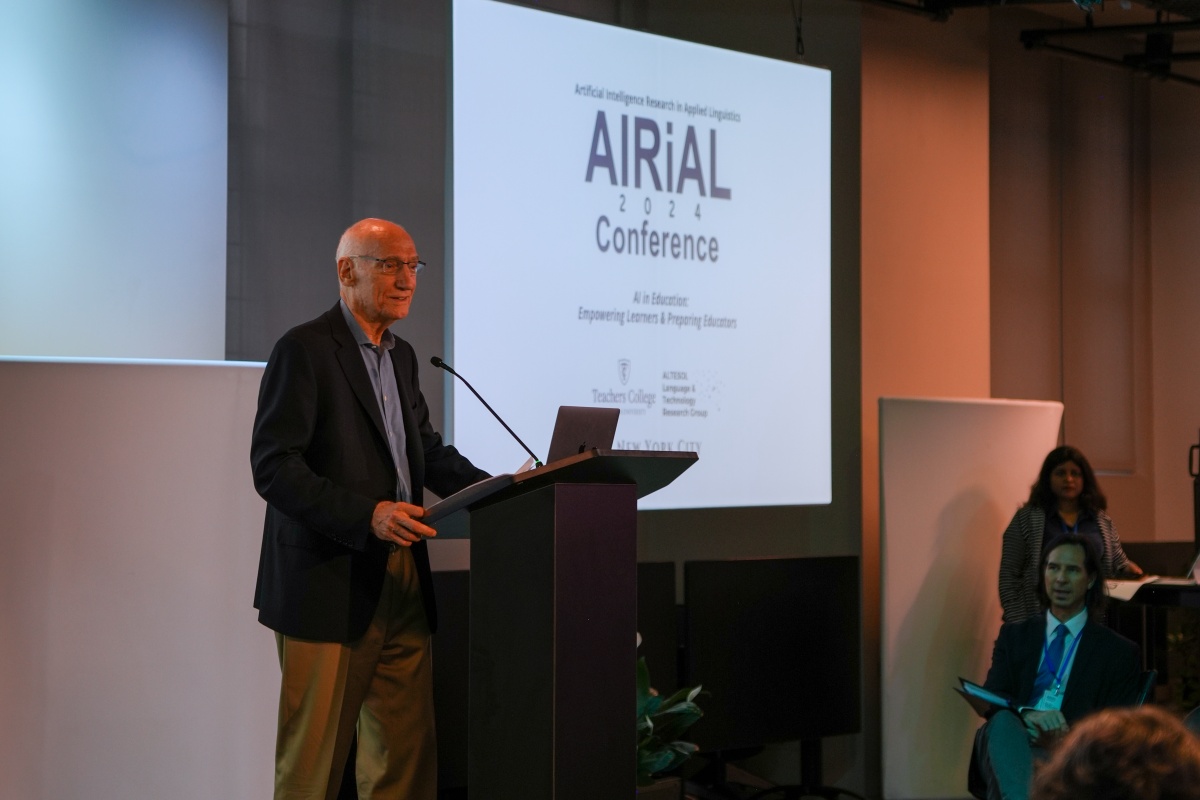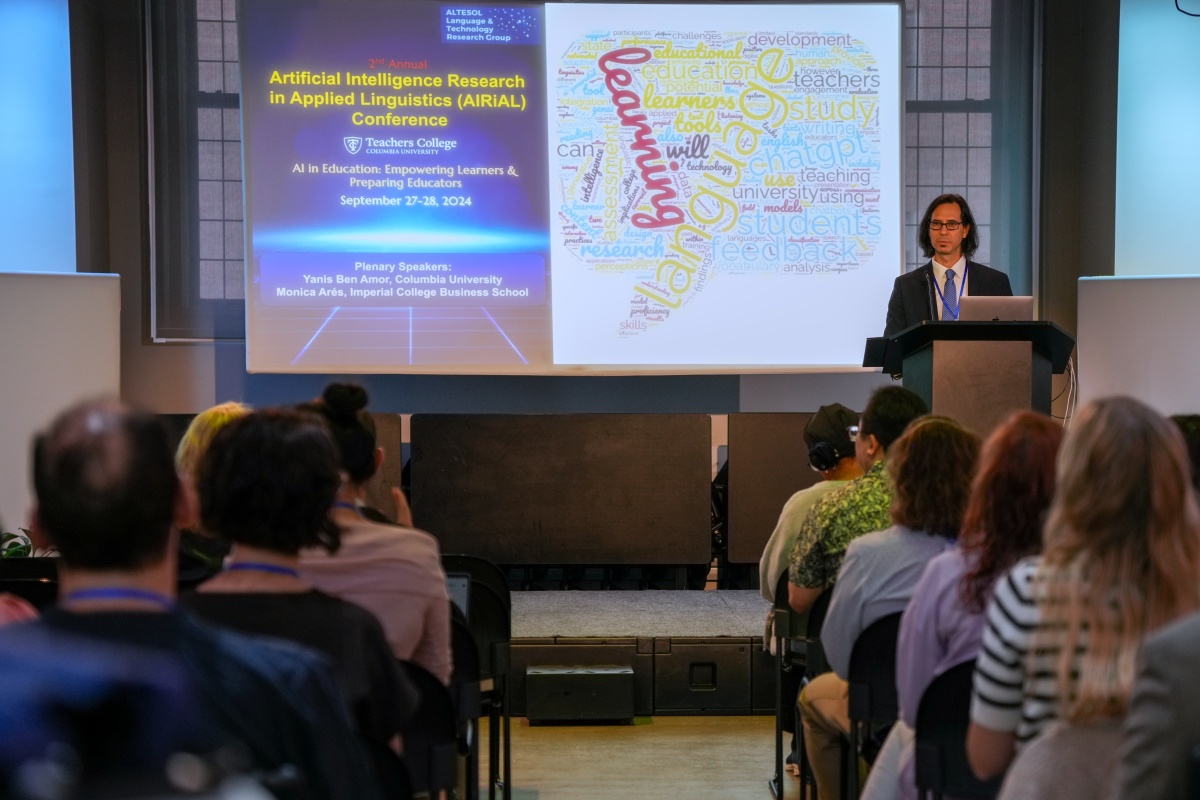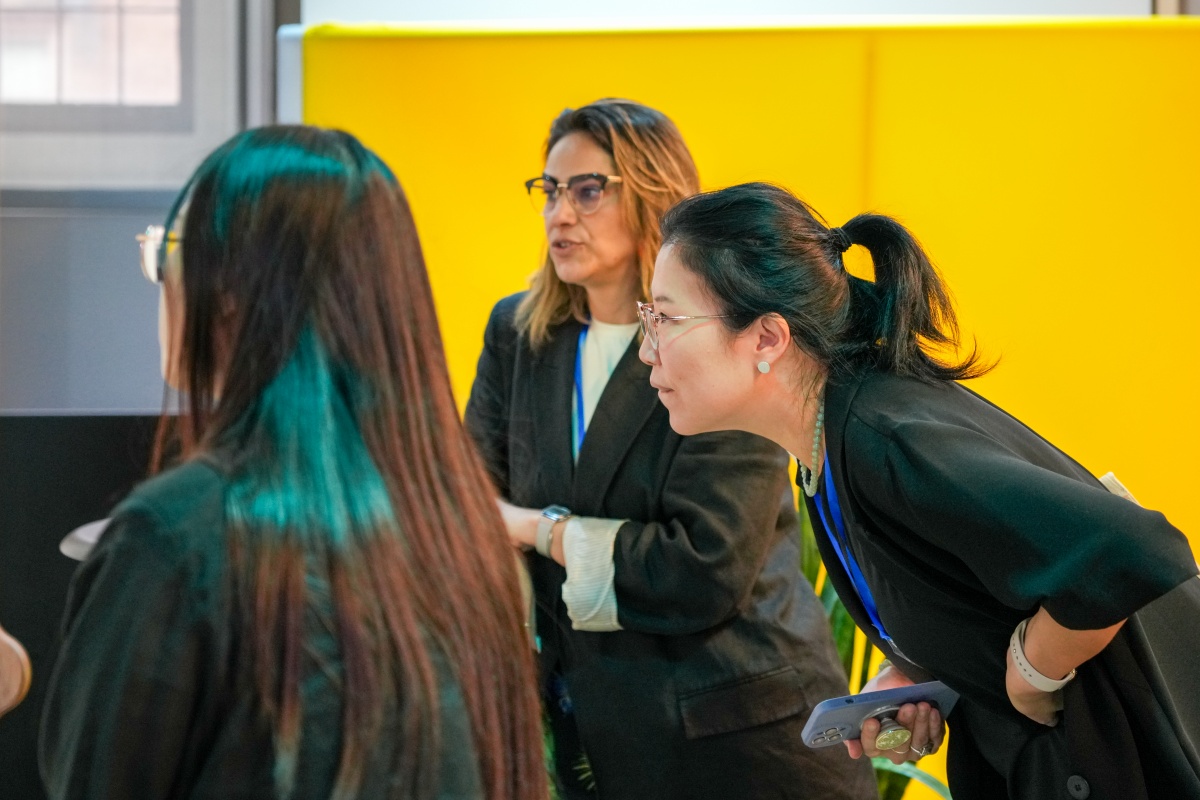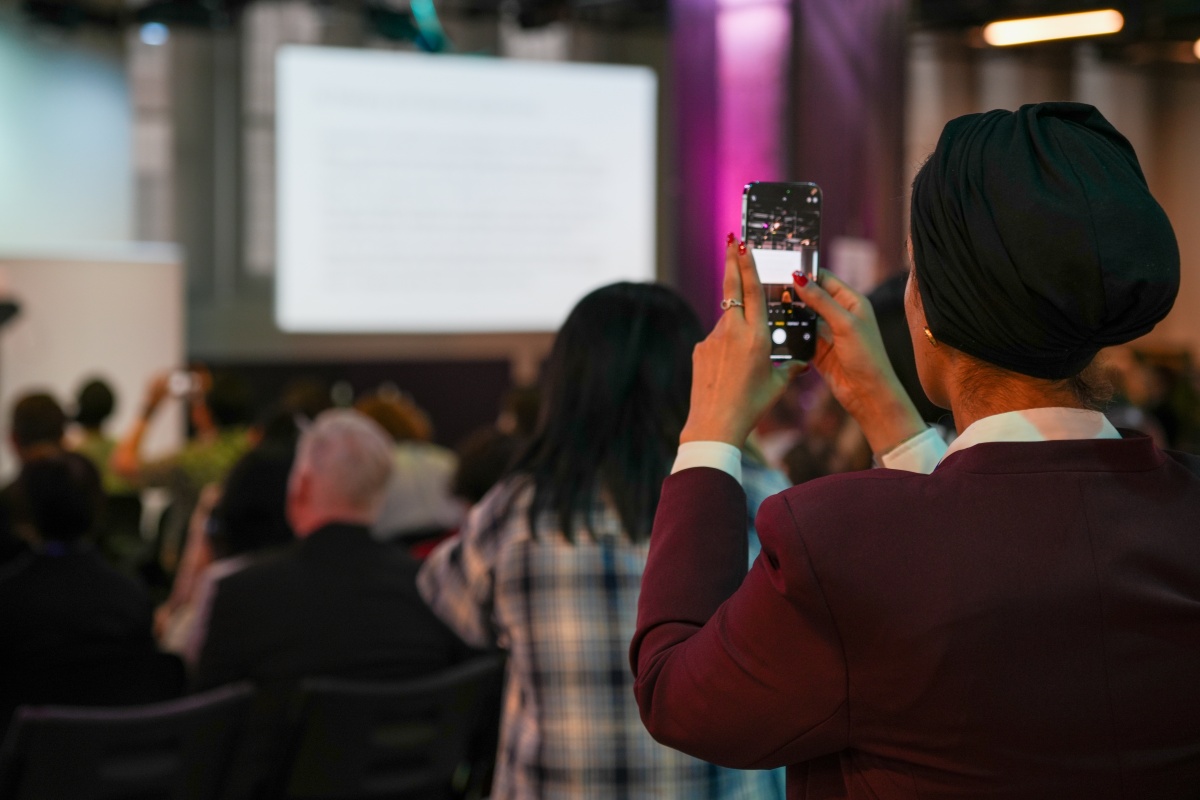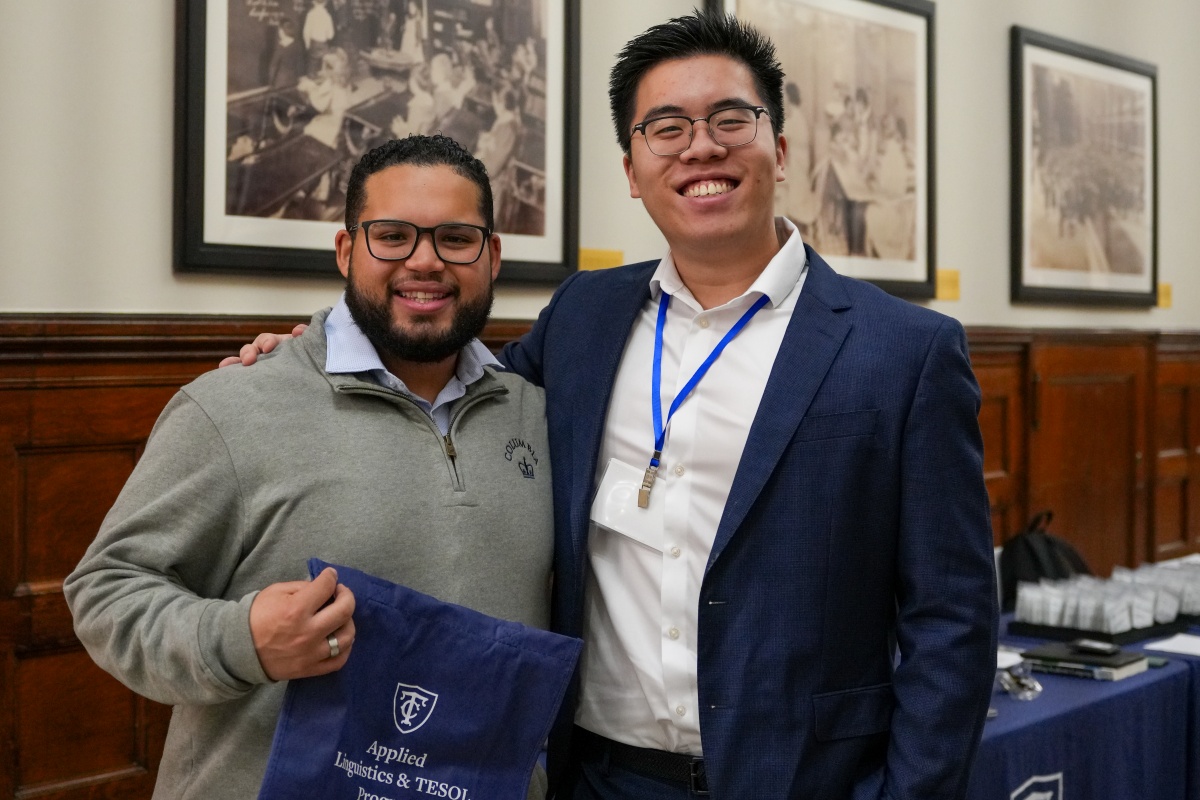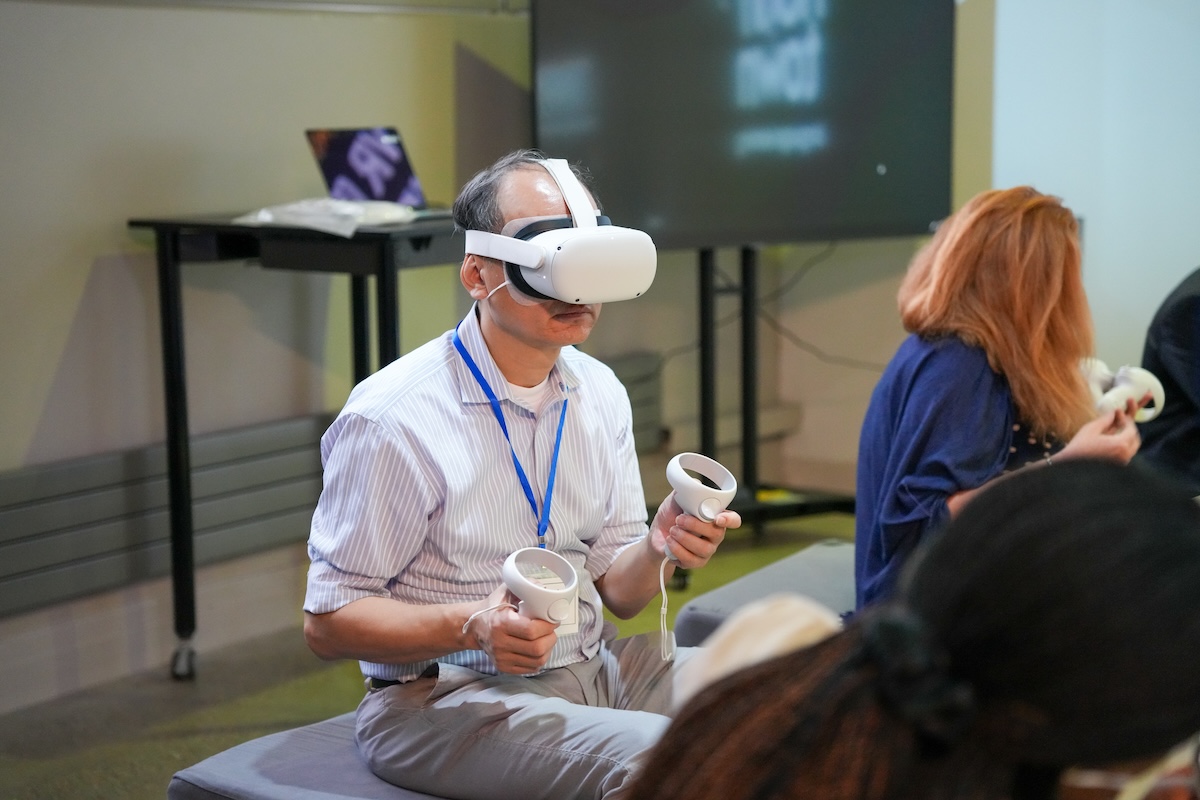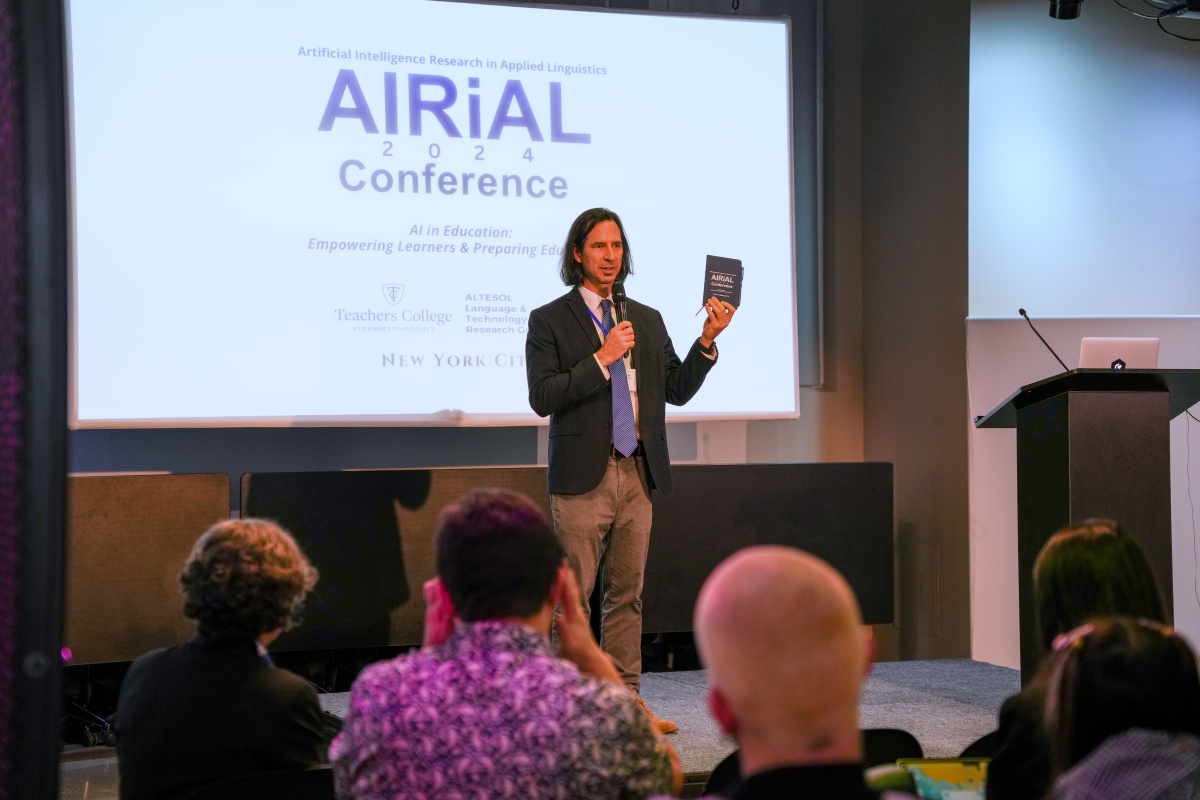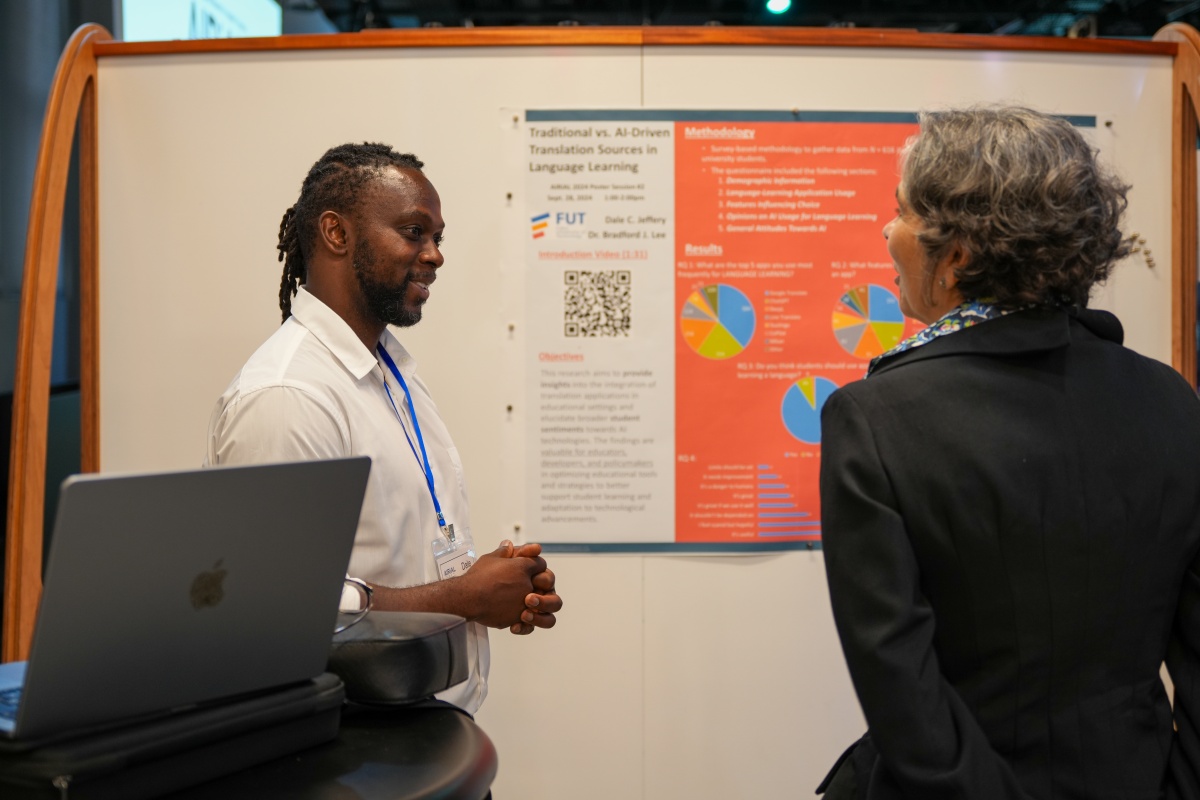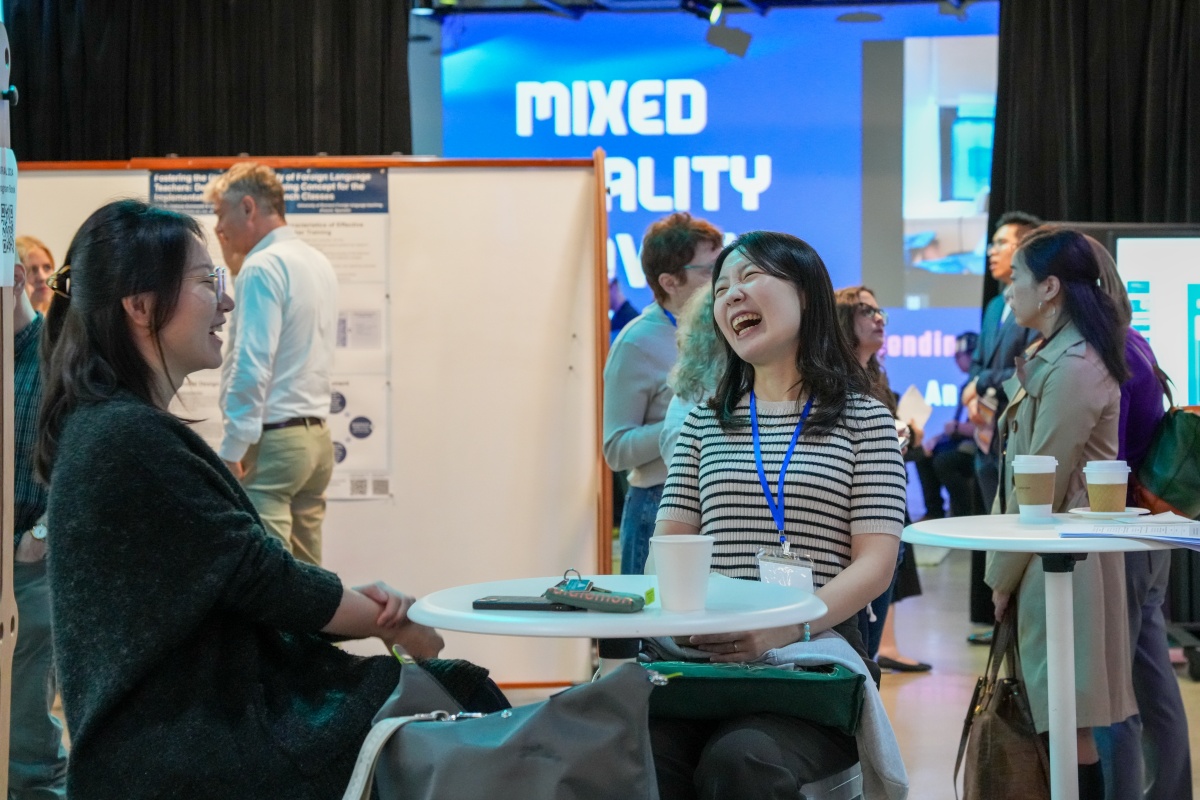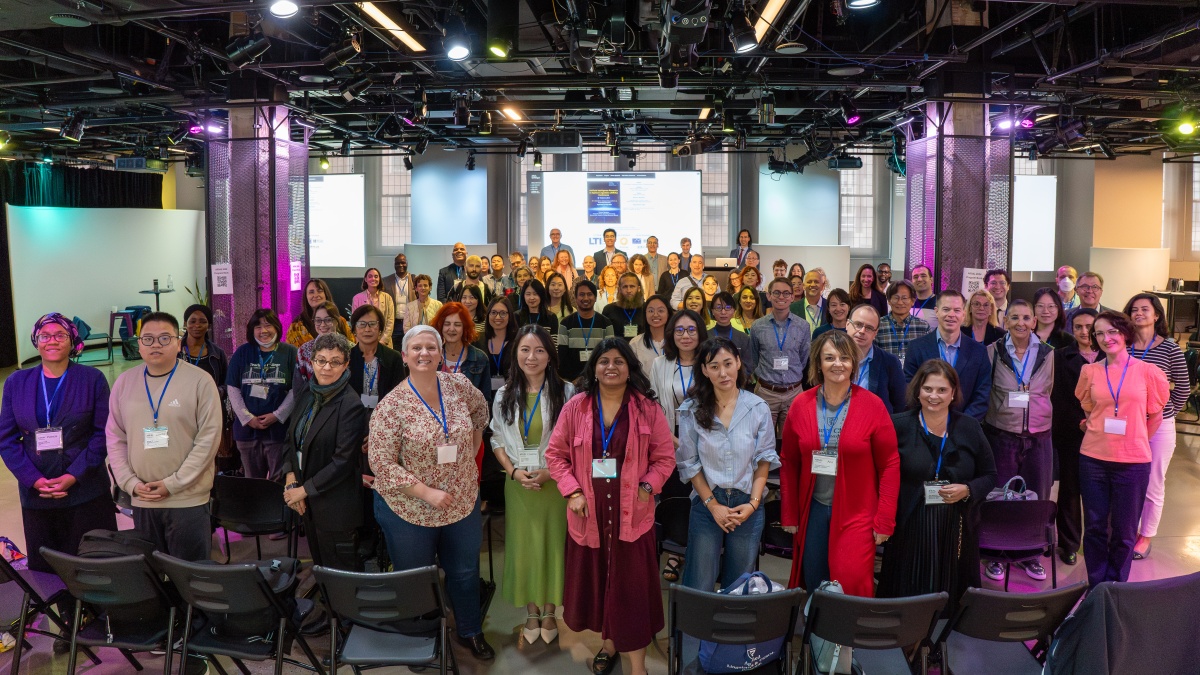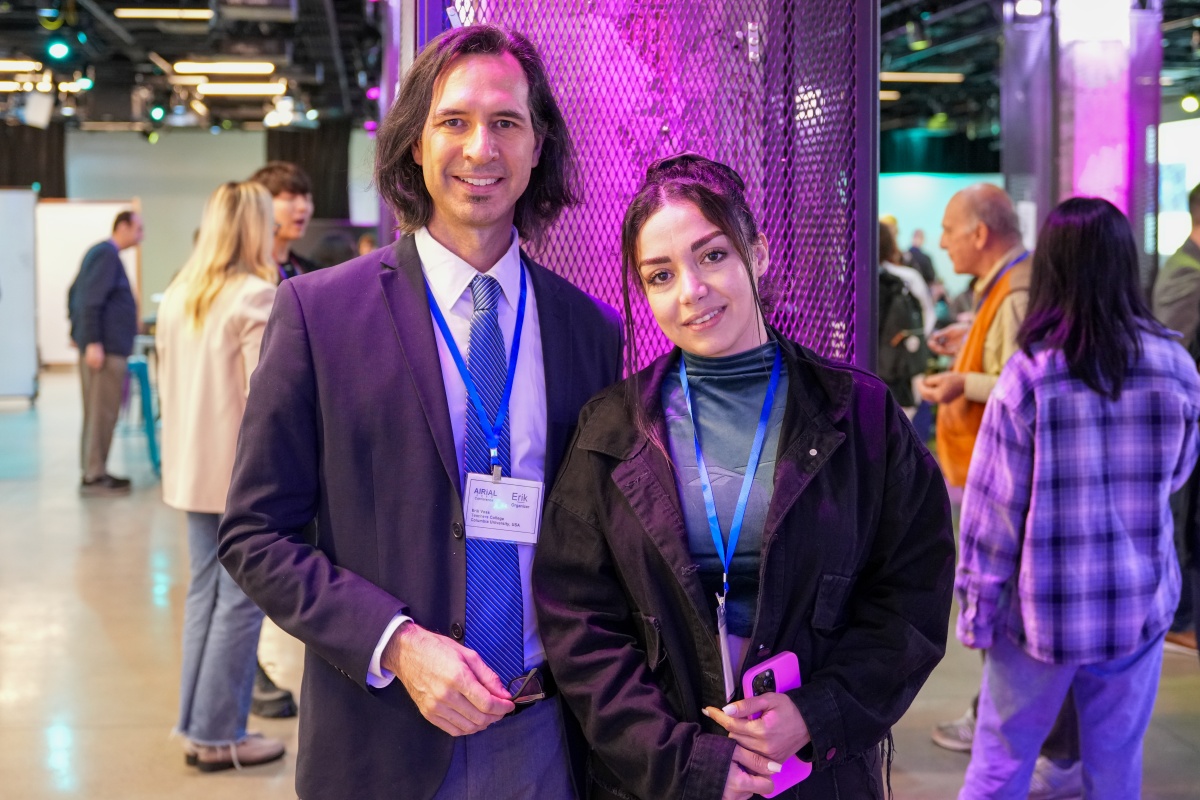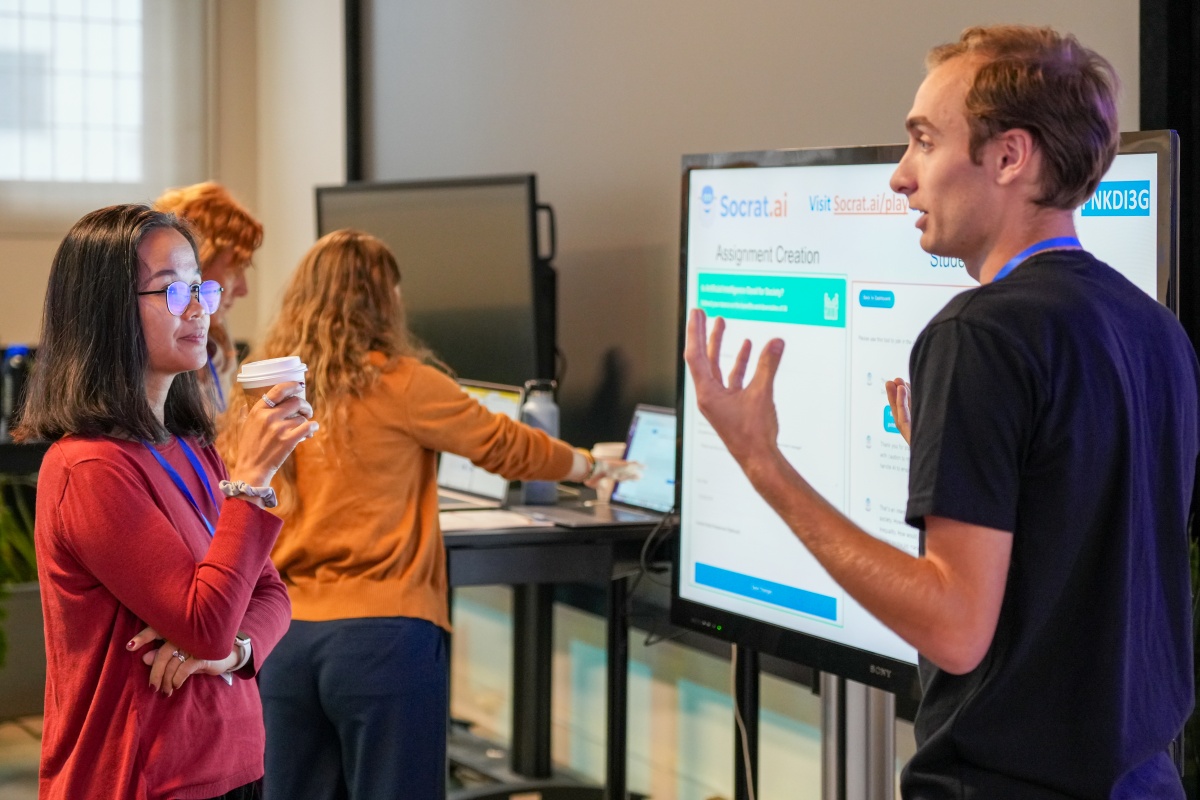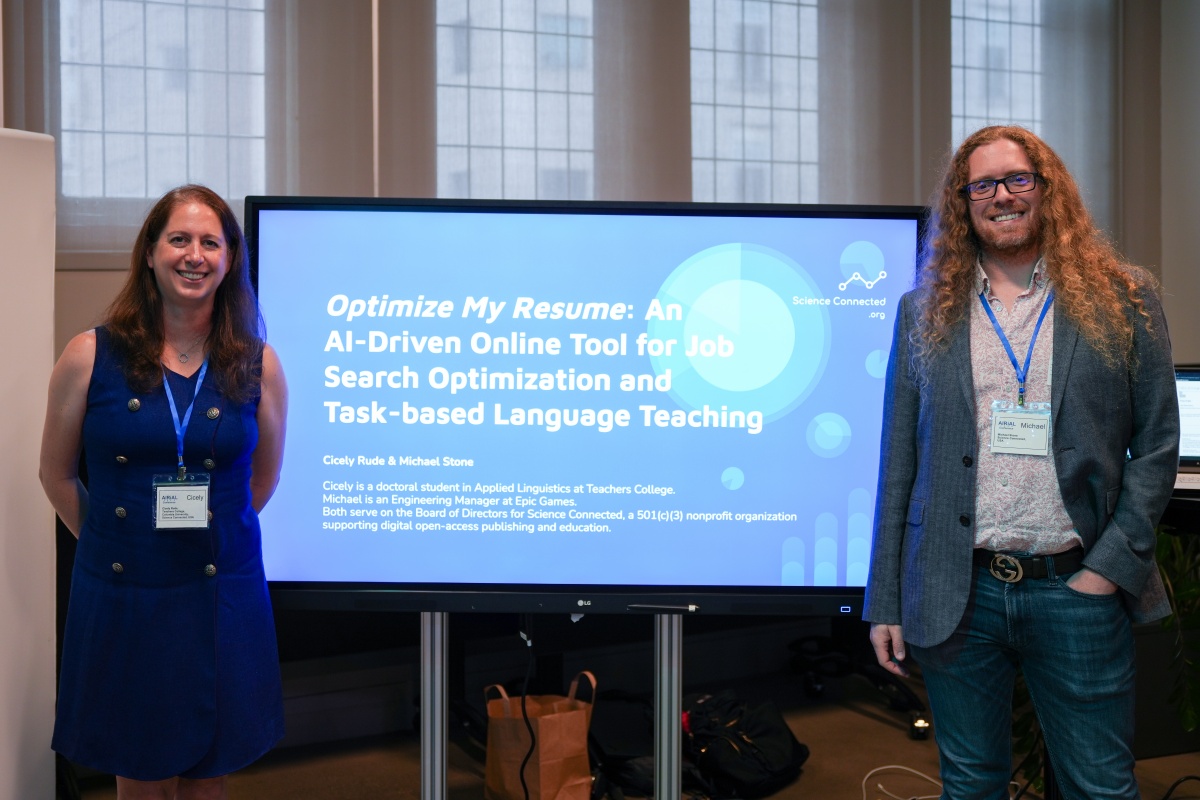The biggest question in education today is not whether generative artificial intelligence will be used in schools, but rather how. Nearly two years after ChatGPT spurred simultaneous excitement and anxiety about the future of generative AI, school leaders and educators across the world are cautiously embracing the tools while scholars continue to debate best practices for the new digital frontier.
Part of that rigorous inquiry includes a focus on the intersection of AI and language learning. At a time when students can easily use apps like Grammarly to improve their essays or Duolingo to practice their foreign language skills, what boundaries and best practices do education leaders need to foster effective, enriching learning?
TC’s Erik Voss, Assistant Professor of Applied Linguistics & TESOL, is one of the scholars exploring such questions, and convened academic and industry experts from across the globe at the second Artificial Intelligence Research in Applied Linguistics (AIRiAL) Conference at the College earlier this fall.
“We’re bridging the gap between academia and industry in this niche area of the discipline to support graduate students as the next generation of researchers and developers,” explains Voss, who welcomed 100 attendees alongside Teachers College President Thomas Bailey at the Smith Learning Theater.
“I am just delighted that you are on our campus to delve deeply into how we support learning and teaching in the realm of applied linguistics through AI,” said President Thomas Bailey in his remarks. “Your work is an important part of our Public Good Initiative, as you connect your scholarship and research with direct impact in the world. I wish you great success, today and tomorrow during our conference, and as you develop new ideas and collaborations over the months and years ahead.”
Experts explored the impact of AI on learning outcomes for written and spoken language skills, assessment, teacher preparation, transparency and more as it applies to English language learners and students working in their native languages across the globe. The wide-ranging, two-day conference captured not only the breadth of issues at hand for linguistics experts contending with the use of AI, but also the complexities of the issues that these scholars must collaborate to resolve.
Objectives like fair testing, optimizing tech solutions and personalizing learning experiences define this particular quest in the journey of AI in education. “Balancing the benefits of using assistive technologies while maintaining the authenticity and integrity of language assessments is necessary,” wrote Voss and his co-authors Sara T. Cushing, Gary J. Ockey and Xun Yan in their paper just last December, which explores the various complexities to consider when defining “appropriate use of assistive technology that align with human values.”
In addition to more than 28 presentations on a range of issues related to linguistics and AI, the summit featured demos from entrepreneurs developing tools to help optimize AI applications in classrooms and professional settings. Showcased work included:
- A resume optimization tool from Science Connected, led by current TC doctoral student Cicely Rude, their Board President and Executive Director
- Socrat.ai, an ethics-focused tool for teachers and students co-developed by Nina Bamberg (M.A. ’20), the company’s Director of Curriculum & Instruction
- Twee, which generates personalized classroom materials specifically for English teachers like Sharon Chan (M.A. ’25), who has used the tool in her own ESL teaching
“Participating in the conference led to an outpouring of support and invaluable feedback from attendees,” said Rude, whose work through Science Connected aims to support education through accessible publications and tools. “Audience members not only affirmed the tool’s usefulness, but also suggested innovative applications we hadn't considered…We are excited about the opportunities for collaboration and look forward to a fruitful, ongoing relationship with AIRiAL.”
Learn more about the Artificial Intelligence Research in Applied Linguistics (AIRiAL) Conference here.

